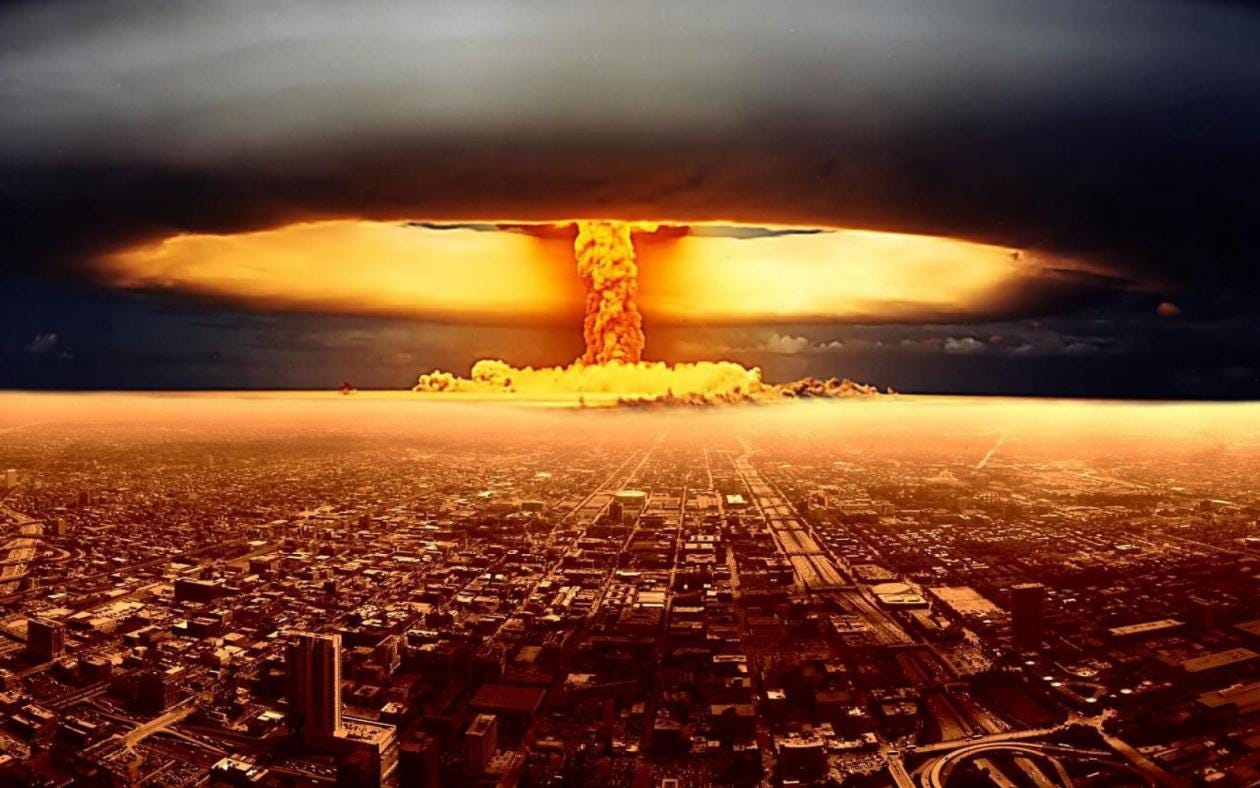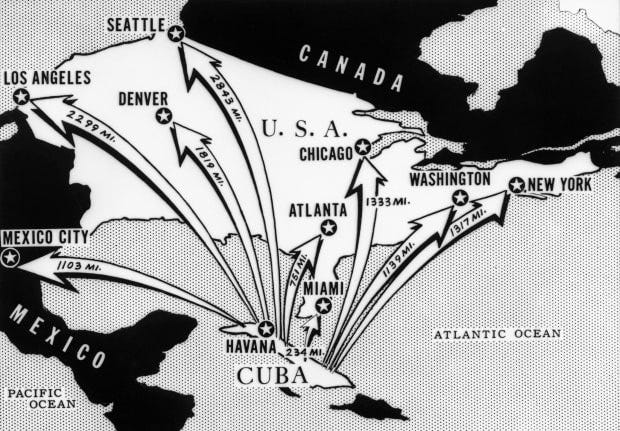NUKES: The Psychological Shockwave
The next nuclear detonation will reverberate through out the global human mind.
A single nuclear detonation can’t bring down modern civilization. But it can perhaps psychologically undermine that civilization in profound ways that we’ll only begin to understand once it happens.
A key problem for nuclear weapons activists is that for most people, the relationship with the threat of nuclear war is largely an abstract intellectual experience, much like reading about crime statistics in the newspaper.
One of the effects of the next nuclear detonation may be to rapidly and radically shift humanity's current largely detached relationship with nuclear weapons in to a deeper emotional experience. This could generate a psychological shock wave with unpredictable consequences far beyond the blast zone.
Modern civilization is built upon one thing, faith in the future.
Billions of us go to work every day, typically to a job we'd really rather not do, based on the assumption that this investment will pay off for us down the road. We sacrifice the now on the promise of a future reward.
We know about various threats to our future, but we experience the threats intellectually, so they have limited impact upon our thinking and behavior. We listen to scientists earnestly warning of us climate change on our big screen TV, and think, “yea, somebody needs to do something about that”, before changing the channel to our favorite Hollywood movie. Yea, I do that too.
The next nuclear detonation may cause a critical mass of people around the world to start to question why they are investing in the future. "Why am I saving for retirement? Why am I making house payments? Why am I putting up with crap from the boss?"
The more real nuclear weapons become in the public consciousness the more such civilization threatening questions are likely to arise in the private minds of a great many people.
The Media Tidal Wave
Should the next nuclear detonation happen it will be the most well covered media event of our lives. 5,000 media outlets will relentlessly shove imagery of the vaporized city in to our minds over and over and over again around the clock, just as they did with the falling towers after 9/11.
And for billions of us, few of whom were alive at the time of Hiroshima, nuclear weapons will suddenly become very real. The safe intellectual space which now surrounds our relationship with nuclear weapons will be ripped apart, we'll be thrown in to a deeper more compelling emotional experience, and a psychological shock wave will circle the planet.
The Hippy Shockwave
We can see evidence of such a psychological shock wave phenomena in the hippies of the 1960's.
As one example to illustrate, when I was ten years old I watched the Cuban Missile Crisis unfold just 90 miles off the coast of Florida where I lived. I would walk a half block to the beach and look out to the horizon attempting to see Russian warships headed for Cuba. We learned how to duck and cover at school. We were glued to our tiny black and white TVs each evening wondering if we'd wake up the next day.
From such experiences arose a new generation which, at least in part, questioned everything about the status quo, and often replaced adult responsibilities with an eat, drink and be merry for tomorrow we die lifestyle.
Ok, it didn't last. We grew up. I mean, we sank back in to the middle class dream. We typically gave up on questioning the status quo, and traded it in to become the biggest resource hogging yuppies in human history. BURP! But that hippy psychological shock wave did happen, and in many ways continues to influence our culture to this day.
And if the next nuclear event is more than a single detonation? Well, that may solve the psychological shock wave problem.



